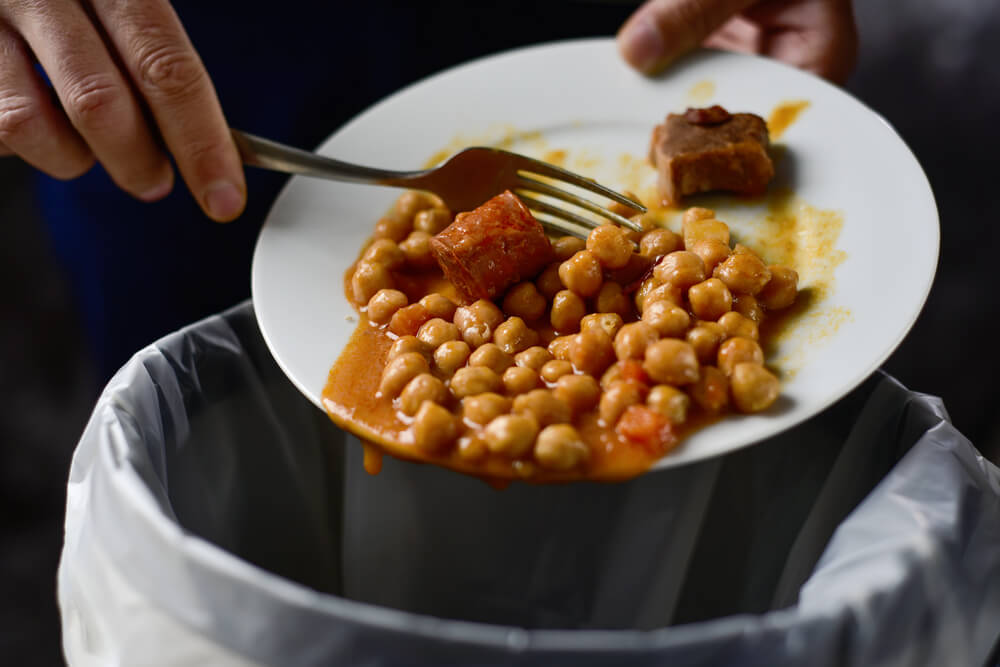These tips on reducing food waste have an actual significant value for our economy and our sustainability.
The fight to save our Planet may be a tough one to tackle as an individual, but the little changes you make at home can have a huge impact on your personal sustainability and help convey the message. Using some of this tips on reducing food waste is a great idea to start your contribution today!
As stated by the Environmental Protection Agency of the United States, most households have no idea how much food is wasted on a weekly basis, or don’t have a clear understanding of why recycling or being thrifty at home can be helpful.
The truth is, the benefits of reducing food waste are many and they go from protecting our environment, to the impact that it has on our actual health, and the contribution we can make for future generations that will inhabit this Earth.
The EPA estimated that on 2014 alone the U.S. disposed of more than 38 million tons of food waste. Fortunately, this does not have to be the case through every year we have a head, because we can learn how food sustainability and waste reduction can actually bring about numerous benefits.
Economic benefits of reducing food waste can be seen through different lenses, for example:
- The reduction of methane emissions and lowering our carbon footprint
- Actually saving money from buying less products each time
- Preserving energy and non-renewable resources
- Preventing and/or reducing the levels of pollution involved in the growing, manufacturing, transporting and selling of food
- The community support through donations, food drives, etc.
These economic benefits of reducing food waste are great motivators for those that are not only trying to promote a greener and more natural lifestyle, but to those concern with the long-term effects our current way of life.
So, why not use some of the following tips on reducing food waste and actually contribute to the good cause ? It can be as easy as sticking to these short points when you go on your next supermarket run.
- Shop smart and shop realistically: a good way to do this is by planning your meals ahead; knowing what to cook will give you a clear idea of the ingredients you will actually need and use, thus avoiding any waste in quantity or variety.
- Practice portion control: believe or not, sticking to a sizing rule may prevent over-serving food that you (or someone else at your table) won’t even touch and that would simply contribute to the waste.
- Know how to store your food properly: whether it is vegetables or fruits, freezing them or preserving them (canning and pickling) is a magnificent way to extend their life span for months at a time.
- Eat your leftovers: if you plan a big meal with the idea of leaving some for the next day (looking at you, work lunch box!) stick to the plan and eat it whether by itself or mixing it with something else for a little variety.
- Be thrifty: this means that you should try to use what you have, before you head out the door to buy new produce. Whether it is preparing home-made broth with those extra veggies snippets, or preparing a casserole or stew with leftover meat, try to use what you have at home.
- Donate: if you are aware that you have too much food around and not enough time to consume it before it goes bad, find out what food bank or charity is available in your area to take some of it and distribute it among those in need.
- Recycle or compost: just as using veggie and fruit snippets to make broth or marmalade, you can prepare your own nutrient-rich fertilizer and use it around your garden.
The great thing about these tips on reducing food waste is that they are easy enough to follow and will make a significant impact in your home, and your community.
Sources:
https://mashable.com/2015/02/15/food-waste-tips/#jpMFd_73kgqm
https://www.epa.gov/recycle/reducing-wasted-food-home
